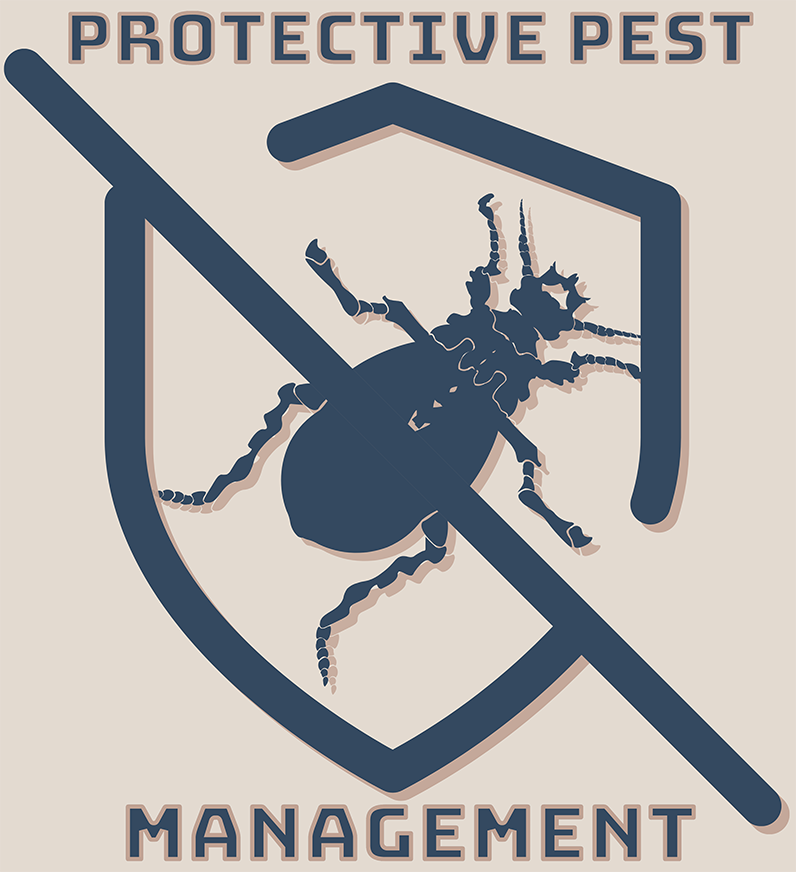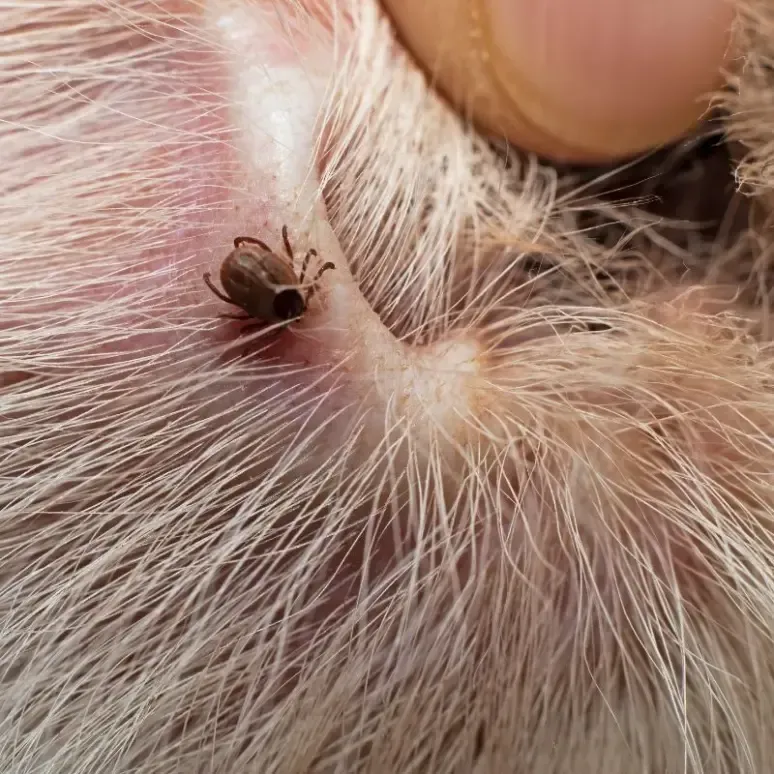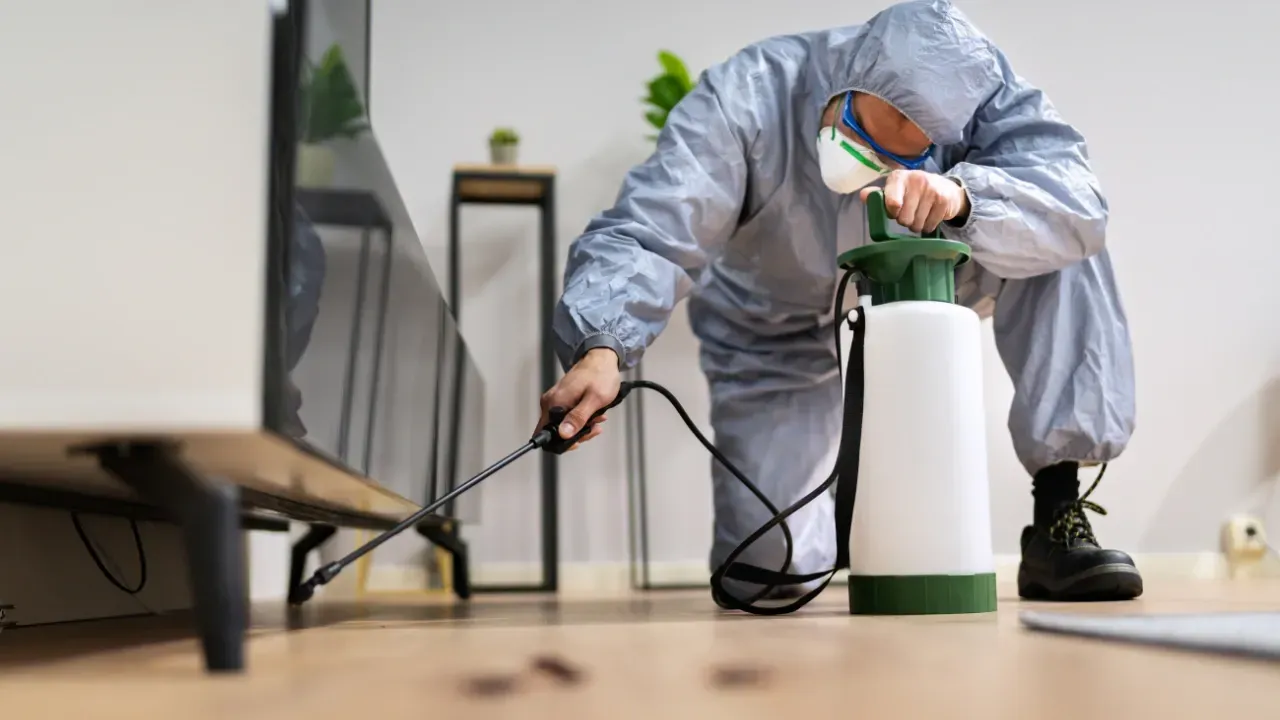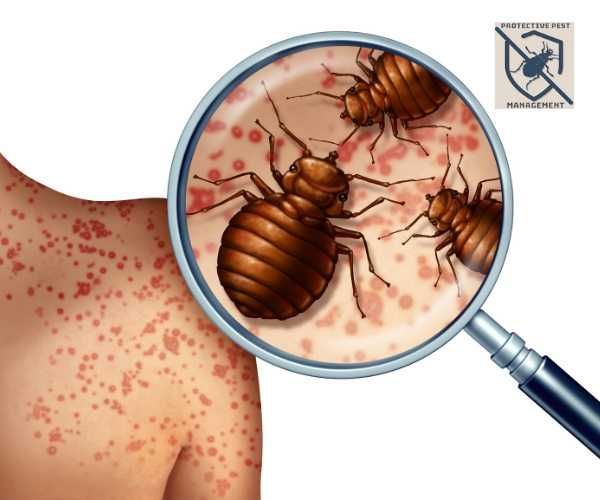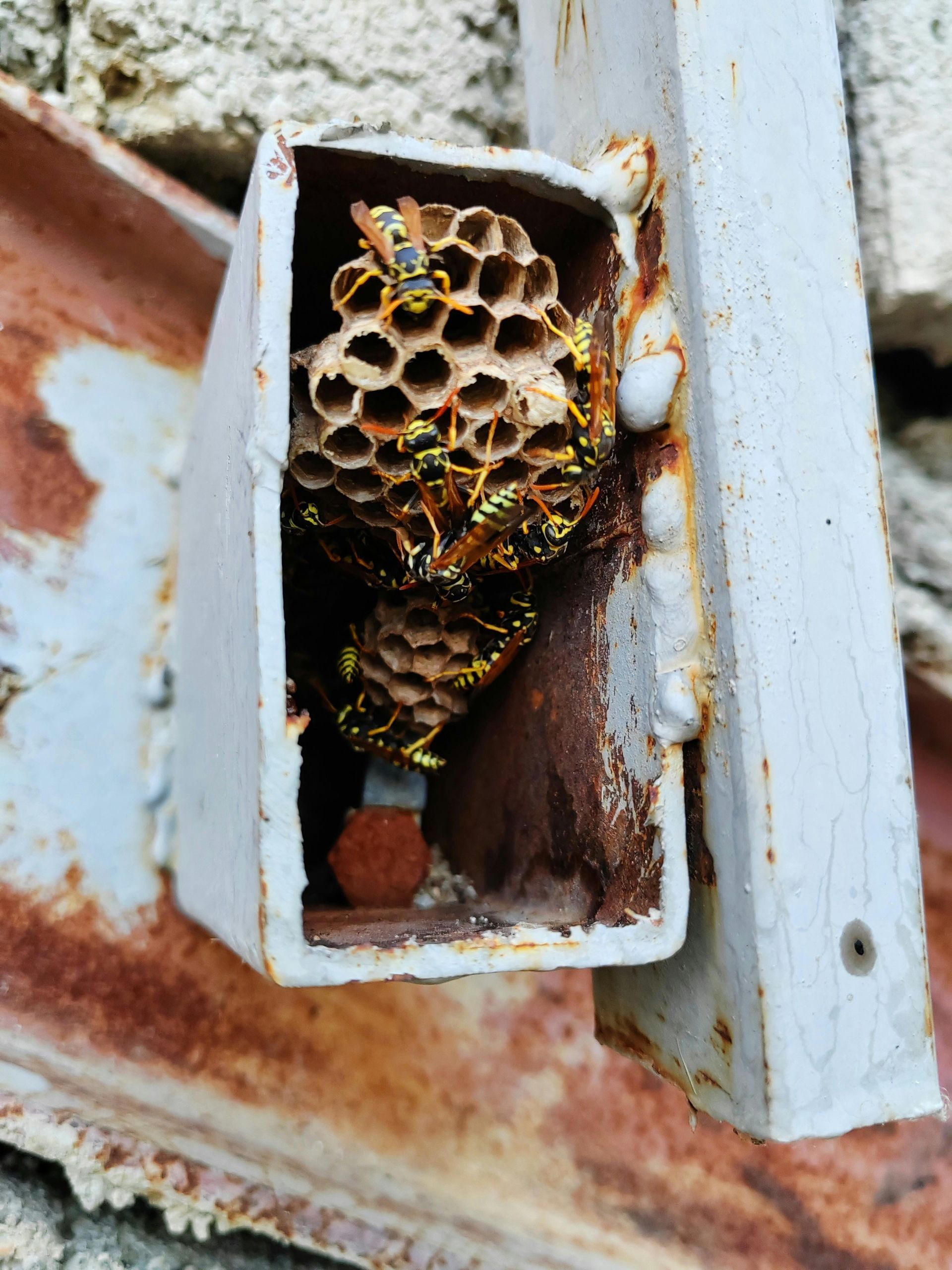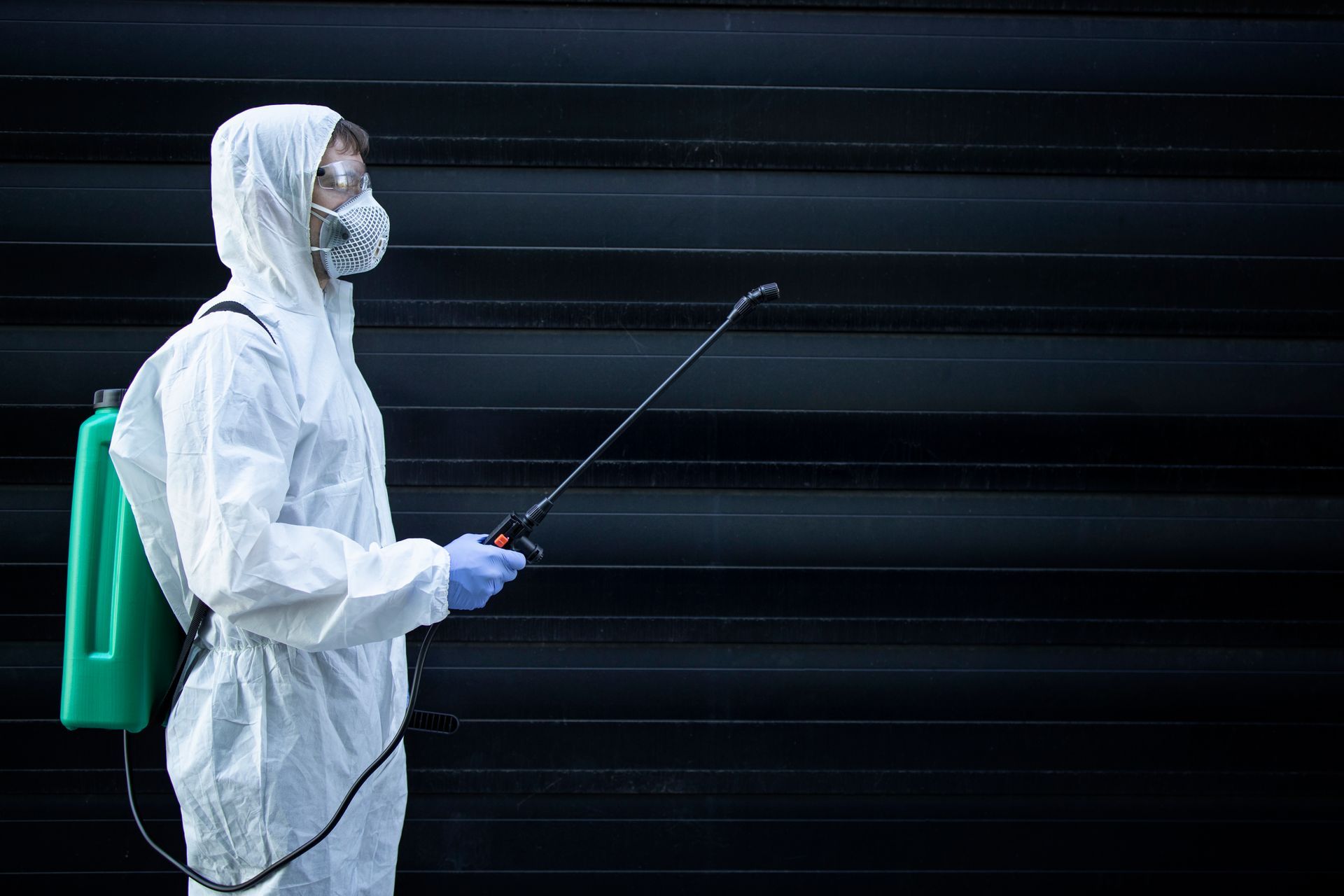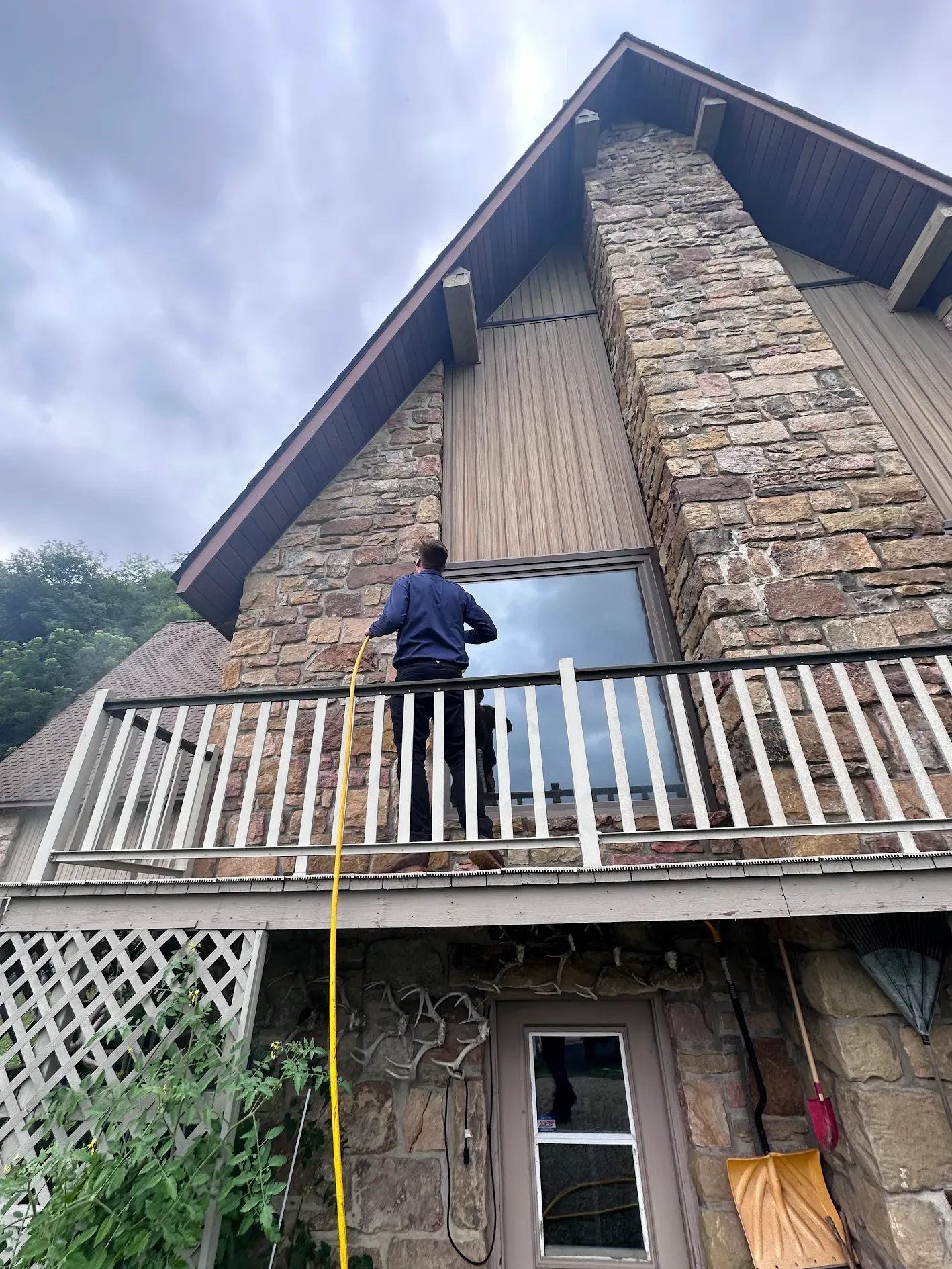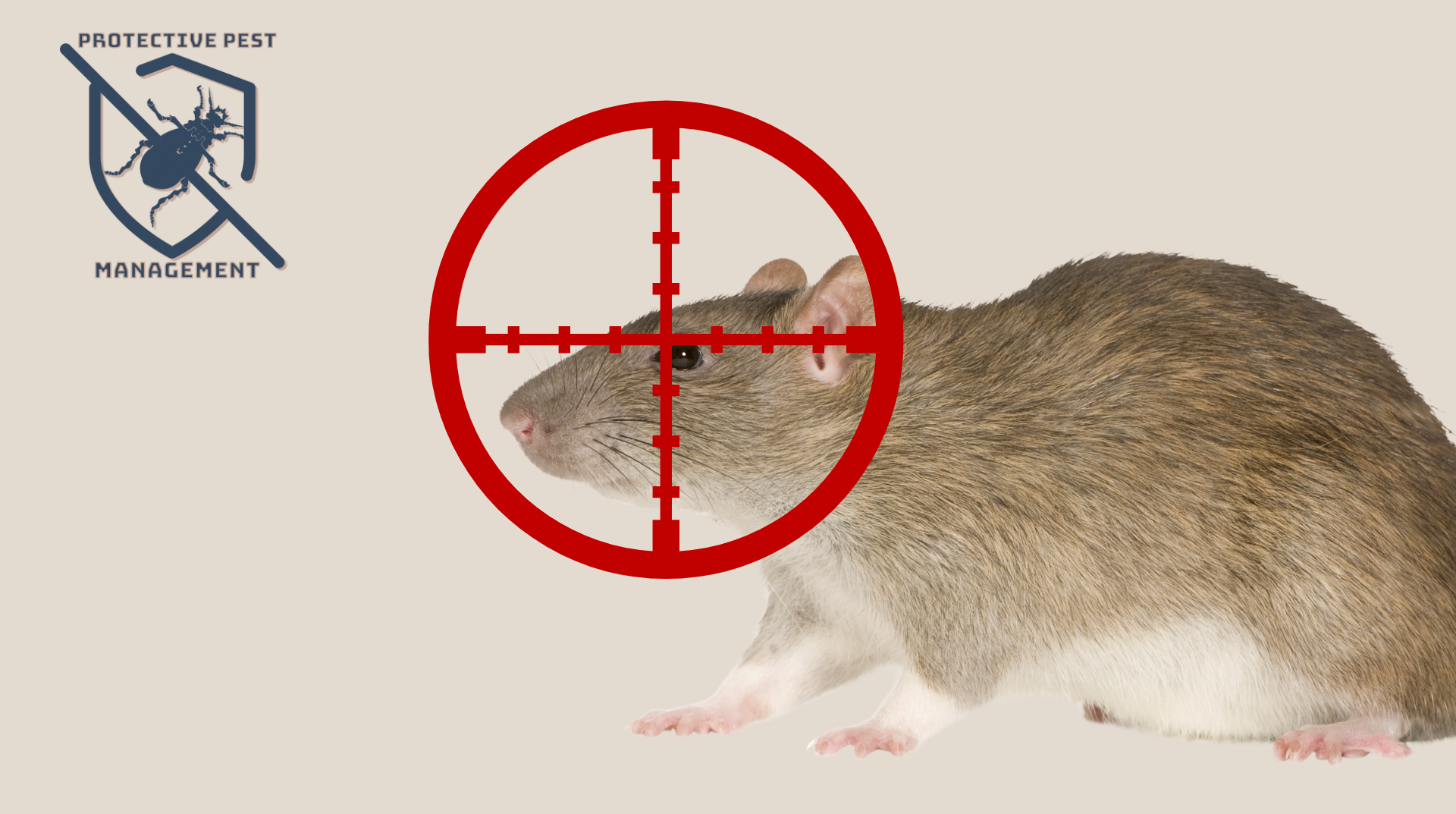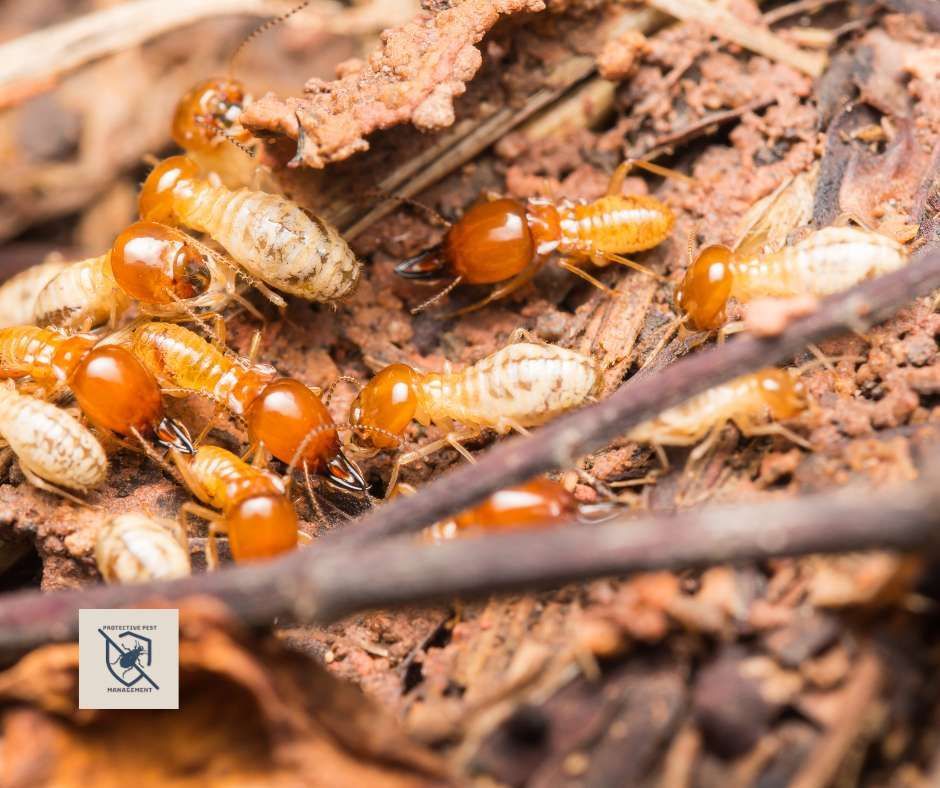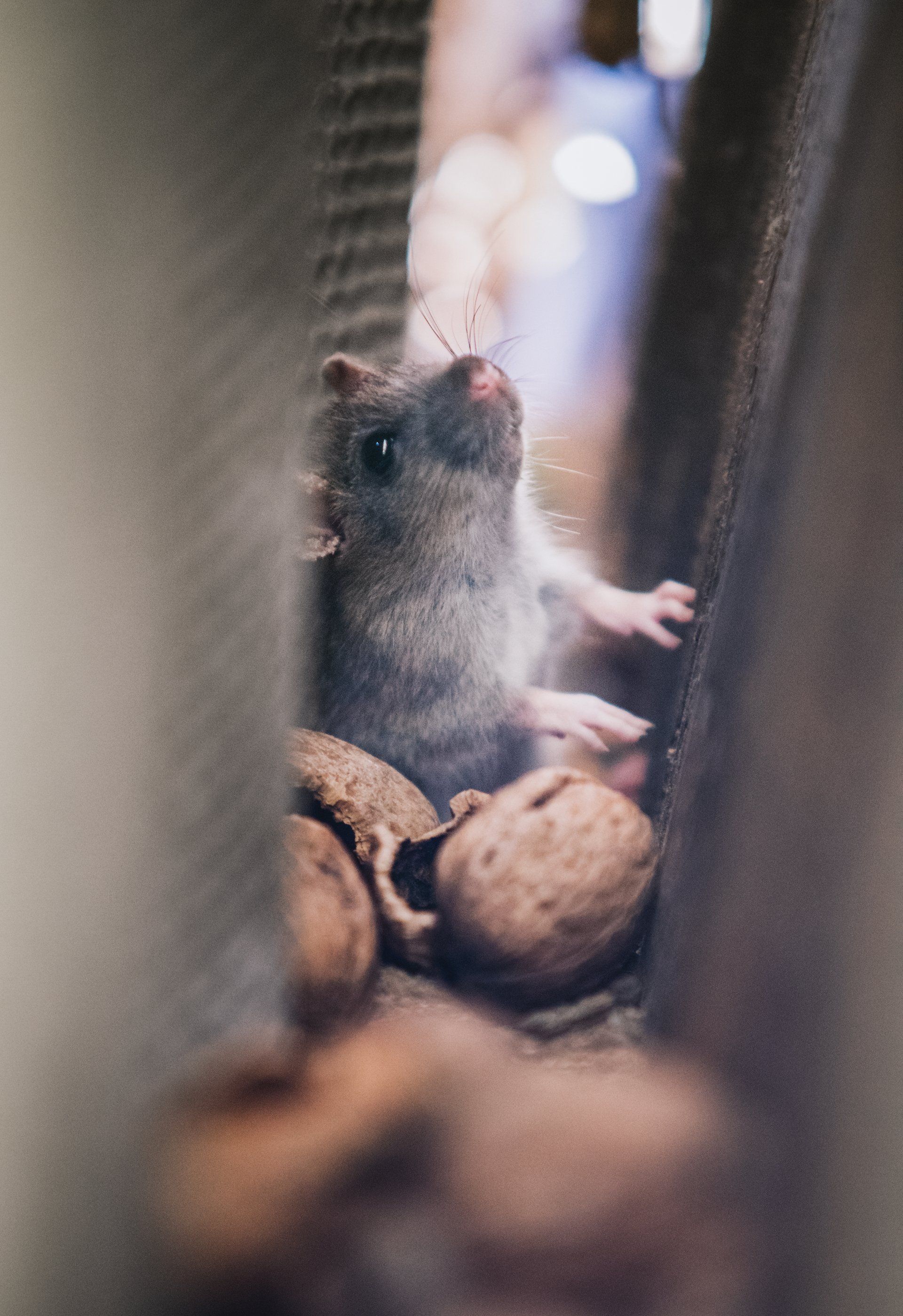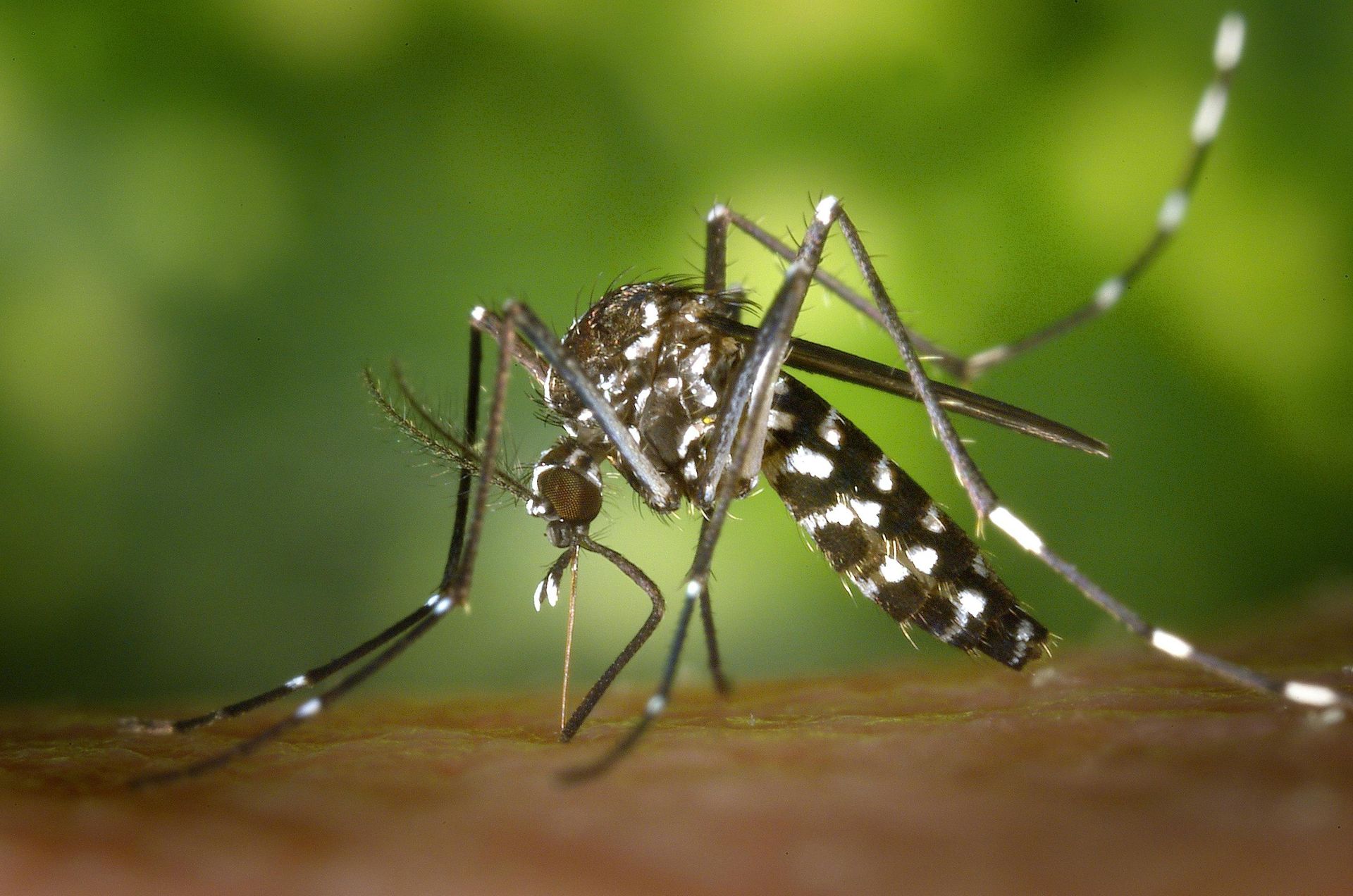Tick Pest Control Services
Ticks aren’t just annoying—they're a real health hazard. Because we all love spending time outdoors, taking steps to manage them is well worth it. That way we can enjoy our yard all year round without worry.
At Protective Pest Management, we're experts at keeping ticks away. Drawing on the best methods and knowledge of tick behavior, our
services are designed to protect your home and family from ticks.
Want a yard free from ticks?
Contact us today for effective tick pest control in Johnstown, Pennsylvania, and take back your outdoor space.
Introduction to Ticks: A Hidden Danger
Ticks are small pests with round bodies and eight legs. They can vary in color, ranging from brown to reddish-brown or black. Though small, ticks are dangerous parasites found in grassy, wooded areas, and backyards. They can spread diseases like Lyme disease and Rocky Mountain spotted fever.
Ticks attach to hosts, feed on their blood, and can go unnoticed due to a numbing agent they produce. Let’s go over their life cycle and see what precautions we can take to protect ourselves from the diseases they carry.
Understanding Ticks and their Lifecycle
The life of a tick is a journey through four stages: from egg to larva, nymph, and finally, adult. At each stage, ticks need a blood meal to grow, making them relentless in their search for hosts. This continuous cycle is what makes controlling tick populations so challenging but crucial.
Why Ticks are a Problem: Health Risks and Diseases
Ticks are notorious carriers of diseases like Lyme disease and Rocky Mountain spotted fever. These diseases can have serious health consequences for humans and pets, creating the need for effective tick prevention and control strategies.
Get Started Living Pest-Free Today
Contact Us
Decoding Tick Biology and Behavior
To tackle tick infestations, it's essential first to grasp what makes ticks such effective parasites. From their physical build to their dietary needs, understanding these aspects is key to keeping them at bay.
Physical Characteristics of Ticks
Ticks, members of the arachnid family, have a distinct flat body and a tough exterior, which helps them attach securely to their hosts and feed unnoticed. Despite their small size, ticks are capable of causing significant health issues, making their early detection crucial.
Feeding Habits of Ticks
Ticks use their keen senses to detect hosts, preferring to attach and feed in warm, moist areas of the body. Their feeding process, which can last several days, is not just a nuisance but a potential source of serious diseases as they transfer pathogens to their hosts.
Breeding Cycle of Ticks
Female ticks lay thousands of eggs at a time, leading to rapid population growth. This high reproductive rate means that a few ticks can quickly turn into a large infestation, underlining the importance of regular tick control measures.
Tick Pest Control Methods
Discovering the most effective ways to tackle tick infestations is crucial for keeping them away from our homes and loved ones. From chemical treatments to more natural approaches, there's a range of strategies to consider.
Chemical Methods for Tick Pest Control
For those seeking immediate and impactful results, chemical pesticides provide a potent solution against ticks. Applied carefully by professionals, these treatments target ticks at all life stages, from lurking larvae to adult invaders, ensuring a comprehensive defense for your yard and home.
Biological Methods for Tick Pest Control
In our quest for balance, introducing natural predators of ticks, like certain ants and nematodes, offers an environmentally friendly way to reduce tick numbers. These biological agents work silently, targeting ticks without the need for chemical interventions.
Non-Chemical or Natural Methods for Tick Pest Control
For households leaning towards green solutions, employing natural methods like essential oils and diatomaceous earth can be effective. While these may require more frequent application, they serve as a safer alternative for pest control, especially in spaces frequented by children and pets.
Why choose us?
Protective Pest Management has a strong track record in
Expertise:
Our technicians are trained in the latest pest control methods. They know how to prevent infestations effectively.
Safe Methods:
We use treatments that are safe for your family and pets, yet extremely effective.
Thoroughness:
Our comprehensive approach ensures that your property will be free of pests year round.
Follow-up Services:
We provide follow-up visits and seasonal treatments to ensure that your property remains pest-free.
Customer Satisfaction:
We prioritize customer satisfaction and are committed to keeping your home or business pest-free.
Longer Guarantee:
We offer longer guarantees of pest protection than most other pest control companies.
Prevention and Safety Measures against Ticks
Preventing ticks from becoming a problem in the first place is the most effective strategy in the fight against these pests. By taking proactive steps, we can significantly lower the risk of tick encounters for our families and pets.
Tick Prevention Tips for Homes
Maintaining your yard by mowing regularly and removing potential tick hideouts, like leaf litter and tall grasses, can greatly discourage ticks from settling in. Establishing clear boundaries with gravel or wood chips can deter ticks from migrating into recreational areas.
Tick Prevention Tips for Pets
Protecting our furry friends is also a top priority. Applying veterinarian-recommended tick prevention treatments can shield pets from tick bites and the diseases they carry. Regular checks after walks in tick-prone areas are essential for catching any unwanted hitchhikers.
Personal Safety Measures to Prevent Tick Bites
Personal protection is key when venturing into areas where ticks may be present. Wearing long sleeves, using approved insect repellents, and performing thorough tick checks can minimize the chances of tick bites and the potential transmission of tick-borne diseases.
Tick Removal and Handling Tips
Knowing the right way to remove a tick is crucial for preventing diseases. Let's go through some steps to make sure you can deal with ticks safely, whether they attach to you or your pets.
How to Properly Remove a Tick
When you need to remove a tick, use fine-tipped tweezers and grab the tick as close to the skin's surface as you can. Gently pull it straight up with a steady pressure. It’s important not to twist or jerk the tick—this could cause parts of it to break off and stay in the skin. After you’ve got it out, clean the bite spot and your hands well with rubbing alcohol, an iodine scrub, or just soap and water.
Necessary Steps After Removal
Once you’ve removed the tick, get rid of it by putting it into alcohol, sealing it in a bag, wrapping it in tape, or flushing it. Don’t crush the tick with your fingers. Watch the bite area for any signs of a reaction or infection, and keep an eye on any symptoms that might show up over the next few weeks.
When to Seek Medical Help
If you notice a rash, fever, headaches, muscle or joint pain, or swollen lymph nodes after a tick bite, it’s time to see a doctor. These could be signs of Lyme disease or other conditions spread by ticks. When in doubt, it's always best to get professional medical advice.
Professional Tick Pest Control Services
Opting for professional help with ticks can make a big difference in keeping your living spaces safe. Here's a look at why bringing in the experts is a good move.
Why Hire Professionals for Tick Pest Control
Professional pest control brings experience and specific methods to tackle your tick issues. They know how to find where ticks are hiding on your property, use the right treatments carefully, and can give you tips on how to avoid tick problems in the future.
For those located outside Johnstown, we offer services in nearby areas. Learn more about our pest control in Somerset and Hidden Valley.
How to Select a Reliable Pest Control Service
When choosing a pest control service, look for a team with solid experience in managing ticks, qualified and trained staff, and great reviews from customers. A dependable company will thoroughly inspect your property, clearly lay out their plan for treatment, and provide follow-up services to check on the success of the pest control measures.
Don't let ticks invade your space!
Contact us now for complete tick pest control services in Johnstown, Pennsylvania, and protect your home and family.
